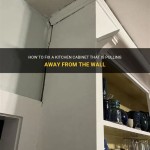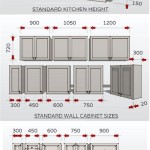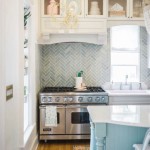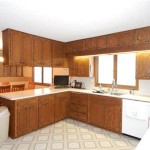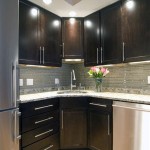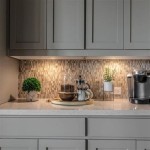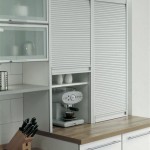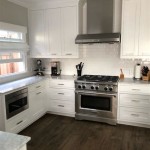Hinges: A Vital Aspect of Kitchen Cabinet Doors
Hinges play a crucial role in the functionality and aesthetics of kitchen cabinet doors. These often-overlooked components ensure smooth opening and closing, while also contributing to the overall design and style of the kitchen. Understanding the different types of hinges available and their applications can help you make informed choices for your cabinetry.
There are several key factors to consider when selecting hinges for kitchen cabinet doors:
- Self-Closing: Self-closing hinges feature a spring mechanism that gently closes the door after it is opened. This feature is particularly useful for preventing doors from being left ajar or slamming shut.
- Overlay: Overlay hinges determine how much of the cabinet door overlaps the cabinet frame. There are different overlay types, including half-overlay, full-overlay, and inset, each with its own aesthetic appeal and functionality.
- Material: Hinges are typically made from various materials such as steel, brass, and zinc. Each material offers unique advantages, such as durability, corrosion resistance, and finish options.
- Weight Capacity: Hinges are designed to support a certain weight capacity. It's essential to choose hinges that can adequately bear the weight of the cabinet door, especially for heavy-duty applications.
- Adjustment: Adjustable hinges allow for fine-tuning the alignment and position of the cabinet door. This feature ensures proper door closure and prevents sagging or rubbing against the frame.
Kitchen cabinet hinges come in various types, each suited to specific applications and preferences:
- Butt Hinges: These traditional hinges are commonly used for both face-frame and frameless cabinets. They consist of two leaves that are connected by a pin, providing a simple and cost-effective solution.
- Inset Hinges: Inset hinges are concealed within the cabinet frame, offering a clean and seamless look. They are ideal for creating a flush door that sits flush with the frame.
- Semi-Inset Hinges: Semi-inset hinges, also known as half-overlay hinges, partially overlap the cabinet frame. They provide a slightly more prominent door profile compared to inset hinges.
- European Hinges: European hinges, also called concealed hinges or cup hinges, offer a sleek and hidden design. They are mounted inside the cabinet door and are only visible when the door is open.
- Pivot Hinges: Pivot hinges, as the name suggests, allow the cabinet door to swing on a central pivot point. They are often used for heavier doors or for creating a distinctive pivot door design.
In addition to their functional role, hinges can also contribute to the aesthetic appeal of kitchen cabinets. Consider the following tips to enhance the design of your cabinetry:
- Match the Finish: Choose hinges that complement the finish of your cabinet doors and hardware for a cohesive look.
- Consider Decorative Accents: Hinges with decorative accents, such as ornate scrollwork or intricate designs, can add a touch of style to the cabinetry.
- Utilize Concealed Hinges: Concealed hinges create a streamlined and modern look, especially when paired with frameless cabinets.
Selecting the right hinges for your kitchen cabinet doors requires careful consideration of factors such as functionality, aesthetics, and durability. By understanding the different types of hinges available and their applications, you can make an informed decision that complements the design and functionality of your kitchen space.

Kitchen Cabinet Door Hinges Pictures Options Tips Ideas

Types Of Cabinet Hinges The Home Depot

Elysian 135 Degree Lazy Susan Hinge Face Frame Plate For Folded Door Kitchen Cabinet Corner Hinges Metal Hardware Replacement 2 Pieces Com

The Ultimate Guide To Kitchen Cabinet Hinges

Replacing Rusty Kitchen Cabinet Hinges Handyman Singapore

What Are The Best Kitchen Cabinet Hinges Titus

Soft Close Inset Cabinet Door Hinges Kitchen Hardware

Kitchen Cupboard Door Hinges Fixings Sds London

Types Of Cabinet Hinges The Home Depot

Vertical Lift Cabinet Door Hinge Decora Cabinetry
Related Posts

